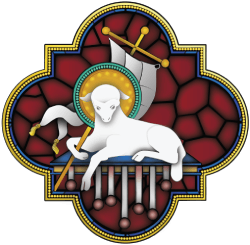August 4 | Pentecost 11, Year B
2 Sam. 11:26-12:13a or Ex. 16:2-4, 9-15
Ps. 51:1-13 or Ps. 78:23-29
Eph. 4:1-6
John 6:24-35
Having witnessed the feeding of a vast multitude with the meager resource of five barley loaves and two fish, the people believed they had seen a showing of temporal power. If Jesus can give us bread, he can provide much more. He could rally the people in a messianic crusade to expel the Romans and restore Israel as a sovereign nation. And so they sought to make him king. But Jesus came to bring a kingdom not of this world.
The feeding of the multitude was not merely or even primarily about satisfying bodily hunger. Rather, it was a “sign” of something much deeper. “Jesus answered them, ‘Very truly, I tell you, you are looking for me, not because you saw signs, but because you ate your fill of the loaves. Do not work for the food that perishes, but for the food that endures for eternal life, which the Son of Man will give you’” (John 6:26-27). In a sense, to come to Jesus, follow him, and believe in him is to eat “living bread.” “I am the living bread that came down from heaven. Whoever eats of this bread will live forever; and the bread that I will give for the life of the world is my flesh” (John 6:51). Every moment of every day, we may, by faith, receive this living bread.
This great mystery is enacted before us in a very special way in the great Sacrament of the Altar. Herein, we recall that on the night before our Lord suffered and died, he gathered with his disciples to share a meal and to assign that meal a unique and eternal significance. The earliest written account of this comes not from the Gospels but from St. Paul, who, in his first epistle to the Corinthians, speaks of a sacred tradition he has received. “For I received from the Lord what I also handed on to you, that the Lord Jesus on the night when he was betrayed took a loaf of bread, and when he had given thanks, he broke it and said, ‘This is my body that is [broken] for you. Do this in remembrance of me.’ In the same way he took the cup also, after supper, saying, ‘This cup is the new covenant in my blood. Do this, as often as you drink it, in remembrance of me.’ For as often as you eat this bread and drink the cup, you proclaim the Lord’s death until he comes” (1 Cor. 11:23-26). In the Holy Eucharist, Christ gives himself to us. Indeed, we pray that we “may be partakers of his most blessed Body and Blood” (The Great Thanksgiving, Rite I). This inexhaustible gift is given uniquely to each individual and, at the same time, to the whole Church. Through it, we become one organic body united in Christ. So, the Eucharist is a sacrament of mutual love.
Listen to the way St. Paul describes the Church. “There is one body and one Spirit, just as you were called to the one hope of your calling, one Lord, one faith, one baptism, one God and Father of all, who is above all and through all and in all” (Eph. 4:4-6). “But speaking the truth in love, we must grow up in every way into him who is the head, into Christ, from whom the whole body, joined and knitted together by every ligament with which it is equipped, as each part is working properly, promotes the body’s growth in building itself up in love” (Eph. 4:15-16). The Church is the love and presence of Christ in you, in you uniquely, and among us all as a bond of unity, love, and peace (Eph. 4:2-3).
Look It Up: Psalm 78:23-25
Think About It: Having received the body of Christ, go on to build up the one body.



